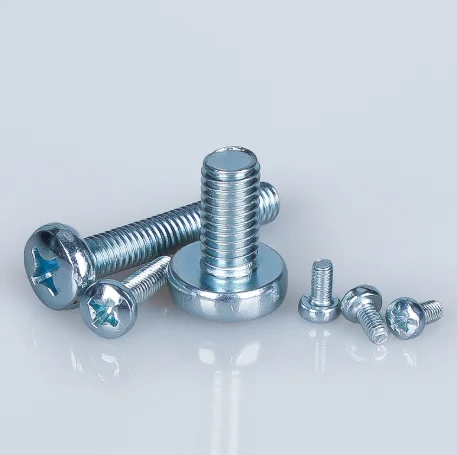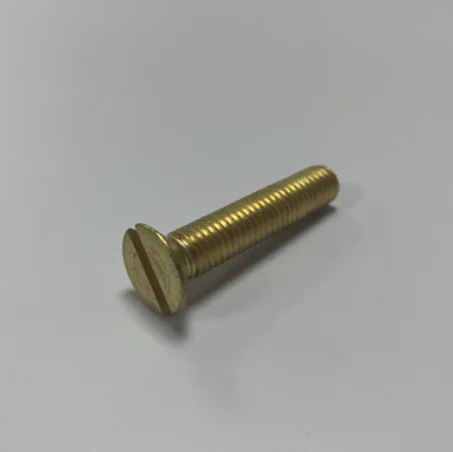caTEGORIES
Tags
How Thread Forming Screws Reduce Material Waste Compared to Machine Screws

Posted: September 26, 2025
Categories: News
When manufacturers talk about saving cost in fastening, they usually point to bulk purchasing or faster delivery. W hat often gets missed is the quieter source of savings: reducing waste on the shop floor. Screws may look small, but wasted material, damaged parts, and rework hours can add up fast. That’s why the discussion between thread forming screws and traditional machine screws matters more than most people think.
Qewitco Fasteners, a company with British roots and a global customer base, has been supplying both machine screws and thread forming screws for years. Their team has seen how different industries—from HVAC to automotive and electronics—handle this choice. Let’s break down the comparison step by step.
What Causes Material Waste in Metal Fastening
Excessive Drilling and Tapping Steps
Traditional machine screws rely on pre-tapped holes. That means drilling first, then tapping, and finally inserting the screw. Every added step increases the chance of off-center threads or broken taps. Shops working with thin metal panels know the pain—one wrong tap and the whole sheet goes into the scrap bin.
Damaged Threads in Thin Metal Sheets
Thin gauge steel or aluminum doesn’t leave much margin. Machine screws can easily strip the threads during tightening. The result is not just wasted screws but often a wasted housing or cover that can’t be salvaged.
Frequent Replacement of Worn Fasteners
Over time, repeated removal and re-installation of machine screws wears down the threads of both the fastener and the hole. In industries like lighting, where components are frequently serviced, this cycle contributes to unnecessary material loss.
How Do Thread Forming Screws Work Differently from Machine Screws
Cold Forming of Threads Without Cutting Metal
Instead of cutting away material, thread forming screws displace the metal to create threads. This cold forming action preserves the base material and avoids chips, which can otherwise contaminate assembly lines.
Stronger Grip in Pre-punched Holes
A thread forming screw locks into the material it shapes, delivering a tighter joint. For manufacturers working with pre-punched holes, this removes the need for separate tapping operations altogether.
Lower Risk of Thread Stripping
Because the material is compressed rather than cut, the threads are denser and more resistant to stripping. This is especially valuable for softer metals like aluminum and brass, which otherwise can’t take repeated fastening.
Why Are Machine Screws Still Widely Used in Industry
Compatibility with Standard Tapped Holes
Machine screws are universal. Whether you’re building a control panel in Germany or a piece of lab equipment in California, a tapped hole with a machine screw is understood and accepted.
Availability in Multiple Head Types and Materials
Qewitco’s catalog includes classic types like Pan Head Recessed Machine Screws DIN 7985, Slotted Cheese Machine Screws DIN 84, and Brass Countersunk Head Slotted Machine Screws DIN 963. Each design caters to a specific look and function—whether you want a flush finish or high torque capability.
Easy Removal and Re-installation
Serviceability is where machine screws shine. They can be removed countless times with less risk of damaging the fastener itself, which is why many engineers still prefer them for assemblies that require frequent disassembly.
Which Machine Screw Types Are Common in Qewitco’s Range
Pan Head Recessed Machine Screws DIN 7985
This type is widely used in enclosures and electrical boxes. With a Pozi or Philips drive, they’re quick to install and their zinc-plated finish offers solid corrosion resistance.
Slotted Cheese Machine Screws DIN 84
Known for their cylindrical head and straight slot, these are popular in older equipment and precision instruments. They’re still valued where traditional slotted drives are specified.
Brass Countersunk Head Slotted Machine Screws DIN 963
Brass gives a decorative look and natural corrosion resistance. These screws are common in electronics and decorative fittings, especially where a flush surface finish is needed.

How Do Thread Forming Screws Reduce Waste in Production
Elimination of Separate Tapping Operations
One of the biggest savings comes from skipping tapping altogether. A single screw can create its own threads during installation. Fewer steps, fewer tools, less chance for error.
Longer Life Span of Fastened Assemblies
With denser, formed threads, assemblies hold up better under vibration and stress. That means fewer call-backs or warranty claims, a hidden form of waste that often doesn’t show up in spreadsheets until later.
Fewer Scrap Parts from Damaged Threads
Because stripping is minimized, more parts make it through quality inspection without rejection. A sheet metal part that once might have been scrapped due to thread issues now passes inspection, directly lowering waste.
What Additional Benefits Do Thread Forming Screws Offer
Better Resistance Against Vibration Loosening
In industries like automotive, screws loosening under vibration can be a nightmare. Formed threads grip tighter, reducing the risk of failure.
Time Saving in High-volume Assembly
Skipping tapping not only saves material but also time. For a production line installing thousands of fasteners a day, shaving even a few seconds per part becomes a major win.
Cost Reduction Through Lower Tool Wear
Cutting taps and reamers wear out quickly. By eliminating the need for tapping tools, thread forming screws indirectly cut tooling costs.
When Should You Choose Machine Screws over Thread Forming Screws
High Precision Assemblies Requiring Detachable Joints
If an assembly must be taken apart often without wear, machine screws are still the safer choice. They deliver predictable torque and repeatability.
Applications with Non-ductile or Brittle Materials
Not all metals are suitable for thread forming. Cast iron, for instance, is too brittle. Machine screws remain the go-to solution in these cases.
Projects Demanding Frequent Disassembly
When technicians need to remove covers or panels weekly, machine screws reduce the risk of fastener failure during servicing.
Wrapping Up
Thread forming screws and machine screws each have their place. But when the focus is on reducing material waste, thread forming designs usually win the argument. They cut down on scrap, extend the life of assemblies, and simplify production steps.
At Qewitco, we’ve seen European customers in HVAC cut their defect rate by double digits after switching to thread forming screws. In another case, an appliance maker reduced tool changeovers by 20% simply by eliminating tapping. These aren’t small numbers; they’re the kind of gains that keep a production line competitive.
If you’re sourcing fasteners, the real question isn’t just price per screw. It’s how much waste and hidden cost the screw prevents. That’s where Qewitco’s wide range—from DIN 7985 machine screws to specialized thread forming screws for metal—offers real value.
FAQ
Q1. Are thread forming screws suitable for all metals?
A: Not exactly. They work best with ductile metals like steel, aluminum, and brass. Brittle materials such as cast iron are better paired with machine screws.
Q2. Do thread forming screws need special installation tools?
A: In most cases, no. Standard drivers and torque tools are enough. What changes is the hole preparation—you only need a pre-punched or drilled hole, no tapping required.
Q3. Can machine screws and thread forming screws be used interchangeably?
A: They can, but not always. If the hole is already tapped, machine screws are the natural fit. If you want to save steps and reduce waste, thread forming screws are the smarter choice.


